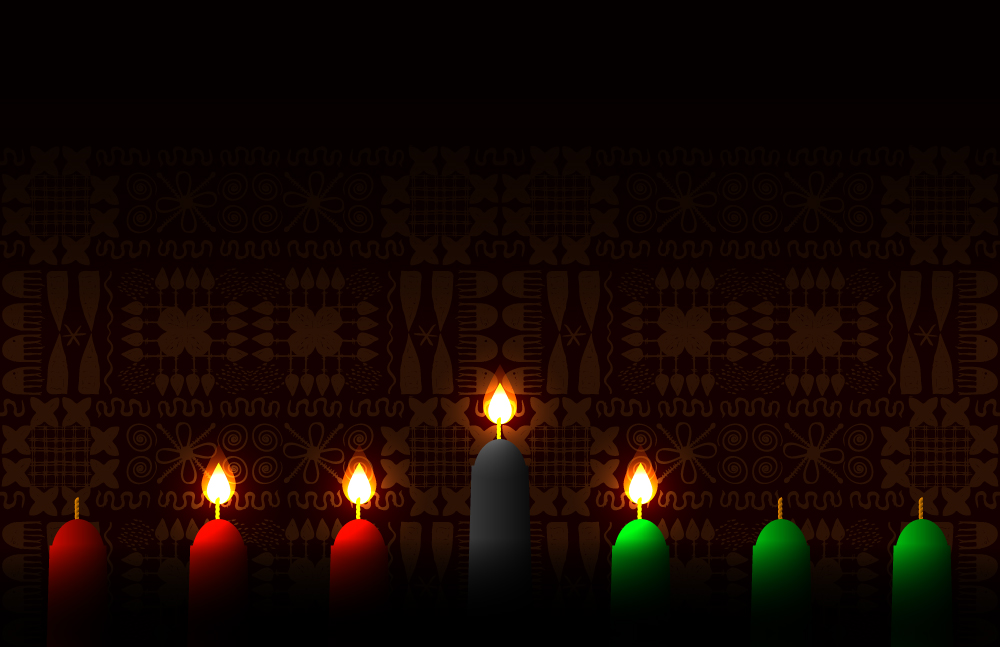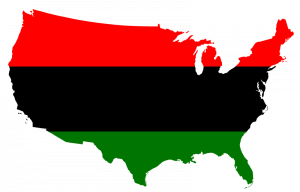Call: Habari Gani?! (What's going on?)
Response: Ujamaa! [oo-jah-muh]
See my previous article about Kwanzaa for an explanation of the call and response.
Today is the fourth day of the Kwanzaa celebration, and it is focused on cooperative economics.
In our kinaras, we light the middle, black candle, the red candle that sits next to the black candle on the left, the green candle that sits next to the black candle on the right and the red candle that sits in the middle of all three red candles.

According to the Nguzo Saba, as written by Maulana Karenga, cooperative economics means:
to build and maintain our own stores, shops and other businesses and to profit from them together
Since the Seven Principles of Kwanzaa should be implemented all year long, let’s talk about how to make that happen.
Let's use the analogy of a coin when we talk about cooperative economics.
On one side of the coin are black businesses. If we are expected to patronize black businesses, black businesses must make their products/services affordable and provide us with excellent customer service. Black consumers should not have to settle for poor service and higher prices when seeking to support black businesses.
The idea that black businesses “have to charge more just to compete” isn't going to cut it when consumers, no matter what their color, are looking for the lowest prices and the best customer support. Black businesses can't compete if they out-price their competition. If black businesses want dollars from black buyers, they're going to have to make it worth our while. Very few black people want to pay 20% to 25% more for a product/service just to say they supported a black business. Many black people do, but they'd rather not have to contend with the markup, if we're being truthful.
On the other side of the same coin are black consumers. If we expect black businesses to stay alive and thrive in our communities, we have to stop looking for the “hook up.” When you get quality, you pay for quality. Black consumers need to expect to pay for what they get, especially when black businesses are offering quality products/services and customer service.
When black businesses say they can't compete without charging more than mainstream businesses, one of the reasons they're saying this is because they have to contend with the “help a brotha/sista out” mentality, which cuts into their profits.
Of course, it is not true that all black consumers are looking for the “hook up,” but there are enough of us out there who are and it makes it tough on black businesses.
The “hook up” or “help a brotha/sista out” mentalities are not the legacy we should want to pass on to our children. Stopping them is definitely a way to implement cooperative economics.
Cooperative economics means we look out for each other's best interest, not just our own. When we seek to benefit while others take the hit, we're not practicing cooperative anything.
Happy Kwanzaa!


